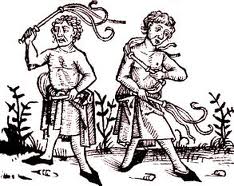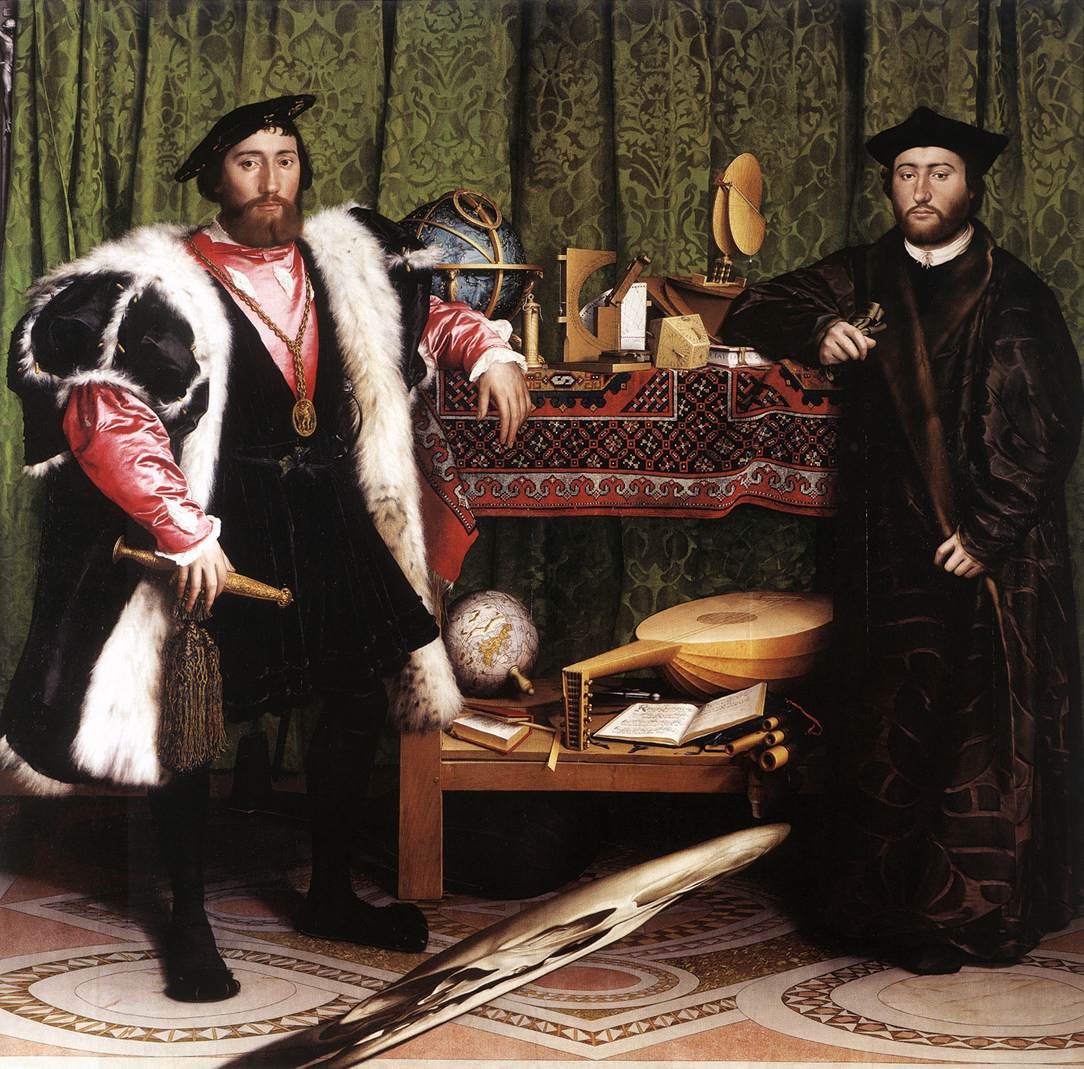- Here is an extract from Sir Thomas More's biography, written by his son-in-law, William Roper, and published in 1626 under the title The mirrour of vertue in worldly greatnes, Or The life of Syr Thomas More Knight, sometime Lo. Chancellour of England (available on EEBO).
'This Lord Chancellour (Sir Thomas More), although he was well knowne, both to God and the world to be a man of most eminent Vertue, though not so considered of every man; yet for the avoyding of singularity would he appeare to the eye of the world no otherwise then other men, as well in his apparell, as behaviour. And albeit he appeared outwardly Honourable, like to one of his Dignity & Calling, yet inwardly did he esteme all such thing for meere vanity: for next to his naked body he wore almost continually a shirt of hayre; the young Gentlewoman, named M. rs More, by chance one day spying as he sat in his doublet & hose at dynner in the sommer tyme, and seemed to smile therat, his daughter Roper perceiving the same (being not ignorant of this his austerity) gave him private notice thereof, and he did presently amend the fault, seeming withall sorry, that she had seene it. He also wore another playne course shirt without ruffe or collar, vpon his shirt of hayre; And many tymes he likewise punished his body with whips, made of knotted cordes; the which thing was only knowne to his daughter Roper, who for her secresy, aboue all the rest he especially trusted, for that as need required she did alwayes wash & mend his shirt of hayre, which he would not discover vnto any other whatsoever.' (pp. 78-9)
Self-flagellation and hair shirts: How does this complicate your view of More as a humanist scholar?
An engraving of self-flagellation 
- Read again Chapter 9 of Book 2 of Utopia in your anthology, esp. pp. 60-1, and the extract below from Roper’s text (you might also want to read the ODNB entry on Thomas More). Think of Utopia’s celebration of religious tolerance and its contradiction by More’s later life: does Utopia truly advocate toleration or are there hints in the text that betray More’s personal views?
'It happened, before the matter of Mariage brought in Question, that M. Roper being one day in discourse with Syr Tho. More, did with a kind of joy, congratulate with his said Father, for the happy Estate of the Realme that had so Catholique a Prince, as no Heretique durst shew his face, so vertuous and learned a Clergy, so graue and sound a Nobility, and so loving and obedient Subiects, all on one fayth agreeing togeather. Troth, it is so indeed, Sonne Roper (quoth he:) and then commended all degrees and estates of the same, far beyond M. Roper. And yet Sonne Roper (quoth he) I pray God, that some of vs (as high as we seeme to sit vpon the Mountaynes, treading Heretiques vnder our feete like Ants) live not to see the day, when we gladly would wish to be in league and composition with those whome you call Heretiques, & to let them haue their Church quietly to themselues, vpon condition, that they would be content to let vs haue ours, quiet to our selues.' (pp. 55-6)



